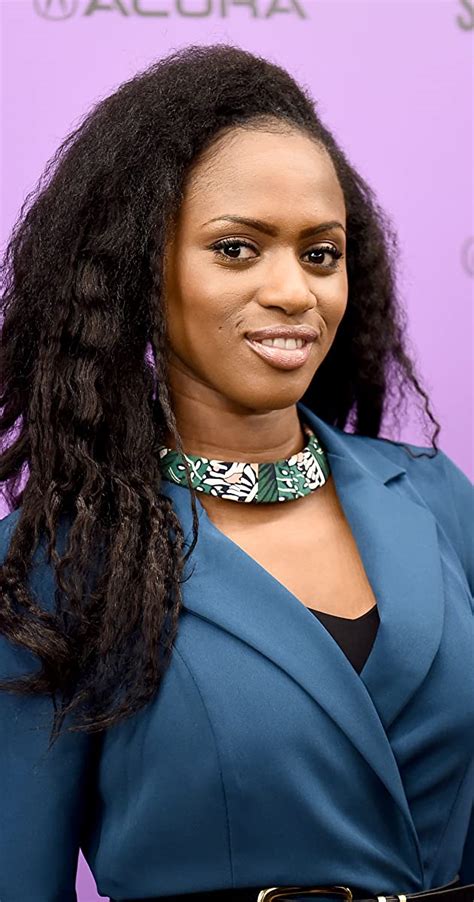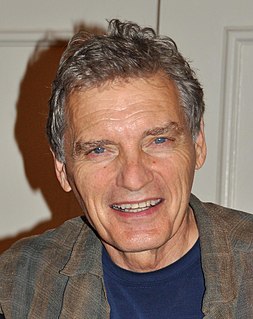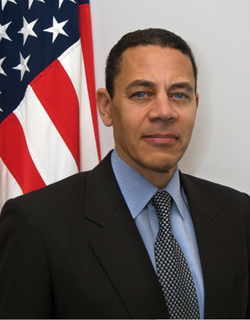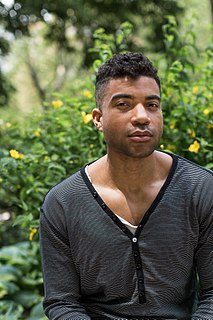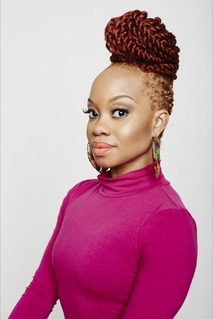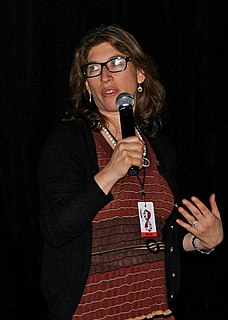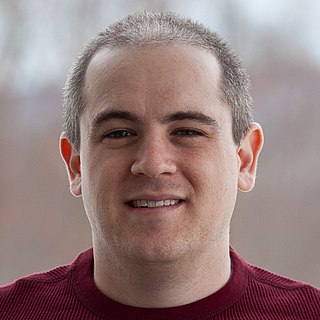A Quote by Maimouna Doucoure
I met over a hundred preteens who told me their stories. I asked them how they felt about their femininity in today's society. I wanted to know how they dealt with their self-image at a time when social media is so important, and they have access to so much information and so many images.
Related Quotes
He would talk to them of stories and books, and explain to them how stories wanted to be told and books wanted to be read, and how everything that they ever needed to know about life and the land of which he wrote, or about any land or realm that they could imagine, was contained in books. And some of the children understood, and some did not.
Each of us is comprised of stories, stories not only about ourselves but stories about ancestors we never knew and people we've never met. We have stories we love to tell and stories we have never told anyone. The extent to which others know us is determined by the stories we choose to share. We extend a deep trust to someone when we say, "I'm going to tell you something I've never told anyone." Sharing stories creates trust because through stories we come to a recognition of how much we have in common.
Today in America many people are living in a virtual world. They enter it through an internet access device and they navigate freely around it, and those people who learn how to navigate better in that space are finding that they have better access to information about jobs and education and all the good things that our society produces.
Making photographs that dealt with the understanding of who I am as a gay man and dealt with the process of accepting that, and also accepting what I'm into sexually, what sexually arouses me. So I was making these images not necessarily knowing what they were about, but just putting it out there - that mode of thinking or consideration of my own desires, and also the much larger conversation around images that deal with ideas of sexuality and how those images are distributed and then accepted or understood by whoever is viewing those images.
The economist Juliet Schor talks about how our reference group has changed over the last twenty-five years. As we spend less time with our neighbors, we're spending more time with people we know from TV and social media, and this becomes our new reference group. The media is full of images of people with wealth, and we're comparing ourselves to them and aspiring to what they have. Instead of keeping up with the Joneses family, we're trying to keep up with the Kardashians, even though it's completely unrealistic.
But obviously, things have changed in many ways since the '50s, when the show is started, in terms of sexuality, and how much access we have to images of it and information about it. But, the same problems always apply. It doesn't matter whether we know a lot more about sex now or if there's a lot more access to it. The same problems of intimacy, of dealing with other people, of connecting and being vulnerable with other people, which is what the show is ultimately about, still applies now, I think.
I will do plays as long as they're interested in having me do them. It's the biggest opportunity to learn the most about how to act. Something I discover every time I'm doing one is how little I know about acting - how important the art of listening is, and how important it is to listen with your entire body. You can tell so much of a story with stillness, and a lot of that can be from really actively listening to your scene partner.
I wanted to know how Jackie felt about [John F. Kennedy], and I got to know Rachel "Bunny" Mellon. Bunny and her were buddies. I asked, "How do you know what Jackie knew?" And Bunny said, "She told me."... Jackie called him "Magic." Bunny said she just picked her man. That was it. This was the guy she loved.
For me, social media is a one-way deal. It's like all the traffic goes one direction and I don't care how many people follow me, I don't care how many people like what I do, give me a thumbs up or whatever it is. I am here to share a piece of information that I've decided is relevant to our relationship as musician and audience member.
